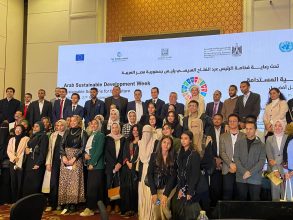
The International Commission “Hashd” publishes a policy paper titled “Towards National Policies to Support Cooperatives and Development Projects.”
Reference number: 60/2023
Date: 11 July 2023
Native language: Arabic
Press release
The International Commission “Hashd” publishes a policy paper titled “Towards National Policies to Support Cooperatives and Development Projects.”
The International Commission to Support Palestinian Rights “Hashd” publishes a policy paper titled “Towards National Policies to Support Cooperatives and Development Projects,” prepared by Dr. Salah Abd El Atei.
This paper is written to analyze the regulatory and legislative conditions of cooperative societies and development and women’s projects, as well as to contribute to the promotion of good governance practices in the work of cooperative societies and development projects, particularly women’s projects, and to promote the spread of cooperative work and raise awareness of its importance, as well as to activate and increase the active participation of women in the cooperative sector.
The paper emphasized that cooperatives and development projects have faced and continue to face numerous internal and external challenges that have weakened their ability and role in achieving their mission following their philosophy, the most significant of which can be summarized as institutional stagnation in dealing with this sector, antiquity of laws, and the absence of policies that allow for an ideal expansion of cooperatives’ approach and philosophy and the inability of members to pay the financial dues of the cooperative, the inability of the management committees to manage the affairs of administrative cooperatives, the weakness of marketing channels for the products of some cooperatives such as marketing honey, and stopping Export activities, especially for olive oil products, medicinal herbs, some vegetables, and women’s cooperative products such as maftoul, pickles, and dairy products. Sales of most cooperatives declined, and operating costs remained stable despite the decline in revenues. Some services related to women’s employment were damaged, such as ensuring school canteens, which led to damage to goods as a result of the closure, and the closure of the services of some restaurants run by cooperatives.
The paper noted that the cooperative sector is one of the vital sectors that has been affected and affected by the political and economic conditions, but in conclusion, we call on international and governmental agencies, civil society, and the private sector to contribute to supporting development projects for youth, women, and the cooperative sector in Palestine, particularly because it directly supports the economy of hundreds of Palestinian families and tens of thousands of Palestinian workers.
The paper developed a series of policies and procedures required by the relevant parties to advance the status of cooperative societies and development and women’s projects, the most important of which are: government and official agency policies, civil society and international organization policies, and cooperative society and women’s development project policies.
To read the full paper, click here:





